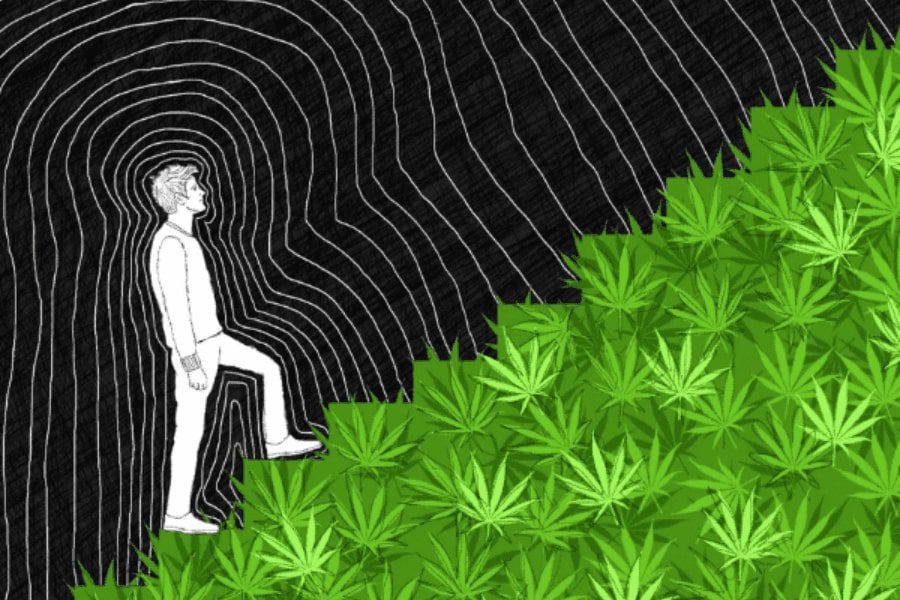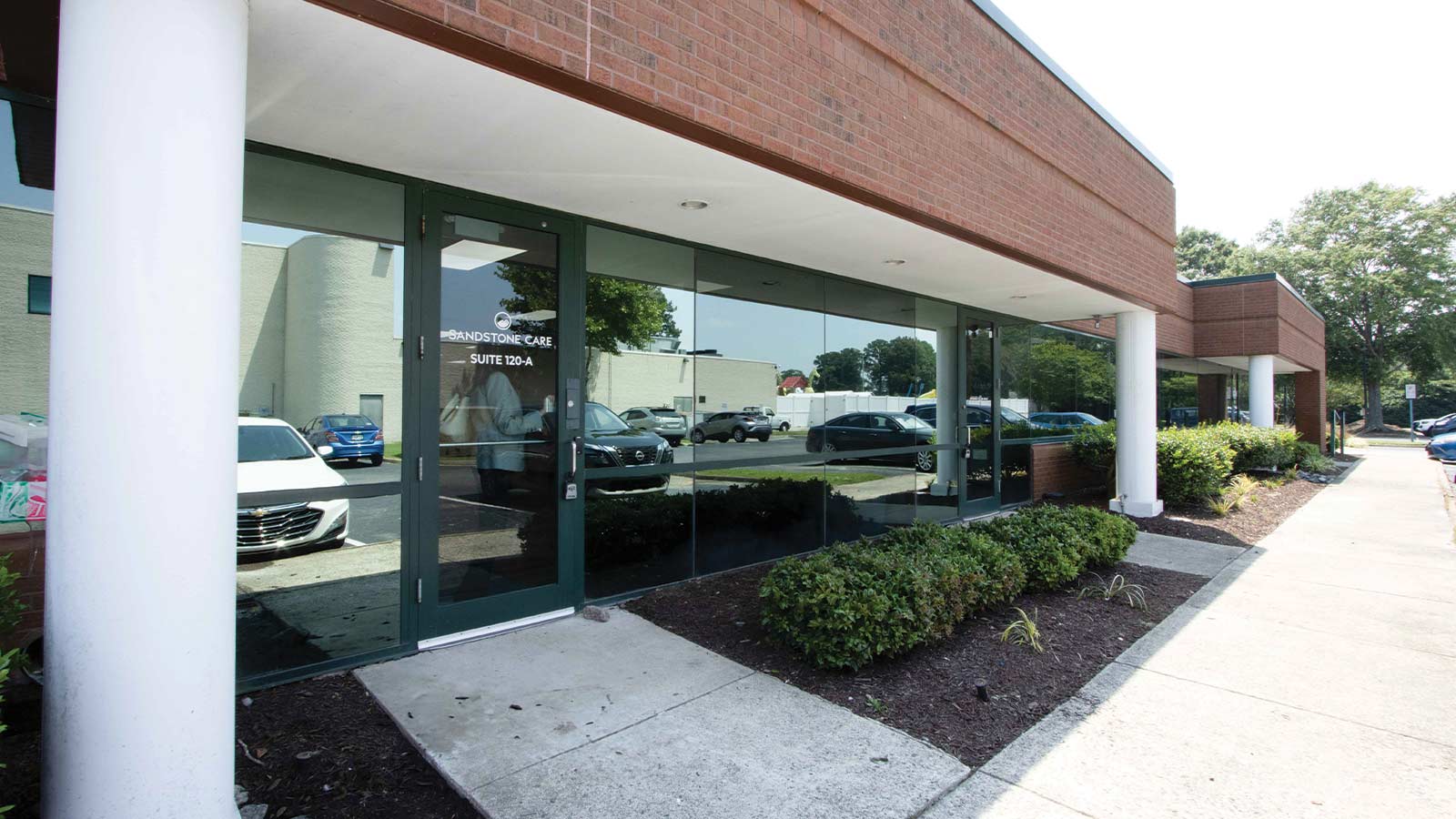Young Adult Marijuana Addiction Treatment & Rehab
According to SAMHSA, about 1 in 10 people who engage in marijuana use will become addicted, when an individual starts before 18 years old, the addiction rate increases to 1 in 6.
Young Adult Marijuana Addiction
According to the NIH, marijuana refers to the dried leaves, flowers, and stems that come from the Cannabis plant.
Marijuana is among the most commonly used addictive drugs, along with tobacco and alcohol. SAMHSA reported that in 2018, over 11.8 million young adults used marijuana in the past year.
Vaping devices that contain THC have also become popular among young people. THC is a chemical present in marijuana responsible for its mind-altering effects.
Marijuana affects brain cells in regions of the brain responsible for coordination, memory, judgment, and pleasure. Many young adults may use marijuana to get “high.”
How do you know if a young adult needs cannabis use treatment?
Some signs of marijuana use disorder in young adults can include:


Sandstone Care offers age-specific, individualized, and evidence-based treatment programs that help you regain control of your life and achieve lasting recovery.
Marijuana can lead to a substance use disorder (SUD) or addiction.
Over time, the brain and body can get used to the psychoactive properties in marijuana, and this can cause people to continue to use it to feel “normal” again.
Determining whether or not you have a marijuana addiction can be difficult, especially in this day and age. Like alcohol, the recreational use of marijuana has begun to become normalized while the negative effects on one’s well being are often ignored.
According to SAMHSA, about 1 in 10 Americans who engage in marijuana use will become addicted, when an individual starts before 18 years old, the addiction rate increases to 1 in 6.

Yes, extended marijuana use can lead to mental and physical issues in young adults.
Some effects that extended marijuana use can have on young adult’s mental health include:
The Continuum of Care
Access a full range of treatments for mental health and substance use disorders. Whether you need a safe transitional living community, inpatient care, or outpatient therapy, we have a program to help.
5-21 days of 24/7 on-site medical supervision.
Our Medically-Assisted Detox and Inpatient Center offers private rooms and 24/7 medically supervised care to support a safe recovery from drugs and alcohol, followed by comprehensive treatment that addresses your physical, psychological, emotional, and spiritual needs.
2-6 Months
Our Transitional Living Program combines the structure of treatment and group living, with the freedom of living away from home.
This level of care is for young adults (18-30) who are not quite ready to heal from home. This level of care provides a safe and supportive living environment integrated with a PHP or IOP level of care. Here, you’ll learn life skills and healthy recovery strategies in an environment that’s set up for your success.
4 weeks of on-site day treatment.
Our Young Adult Day Treatment Program, also known as Partial Hospitalization Program (PHP), is a highly structured level of care for young adults that offers five days of robust programming a week.
Our two distinct mental health and substance use tracks help young adults to stabilize, begin to understand their mental health and/or addiction struggles, and heal from them. We strive to help our clients become more like the person they want to be without using negative coping strategies or substances to get there.
12 weeks of on-site or virtual treatment.
Our Young Adult IOP, or Intensive Outpatient Program, offers two distinct tracks to address young adult needs, each track consisting of 3-4 days of weekly programming.
In our mood disorder track, we are able to focus on mental health, depression, trauma, and anxiety. In our dual diagnosis track, we are able to support young adults with substance use and mental health challenges. Each focuses on developing positive social, academic, and vocational habits while continuing with their job or school responsibilities.
At Sandstone Care, young adult marijuana addiction treatment aims to provide an individualized treatment plan to learn healthy coping mechanisms, avoid relapse, and achieve sobriety.
Cognitive-behavioral therapy, or CBT, is a form of psychotherapy commonly used for young adults struggling with substance abuse and addiction.
Through CBT, young adults can learn strategies and healthy coping mechanisms that help to identify and fix problematic behaviors. In doing so, they can learn self-control, stop drug use, and identify and address any co-occurring problems.
CBT can help treat marijuana addiction by addressing underlying mental health conditions and behaviors that may play a role in marijuana use.
DBT is also a type of psychotherapy that was originally used to treat individuals who were suicidal or diagnosed with a borderline personality disorder.
Today, DBT has proven to be effective for other forms of mental illness and addiction.
DBT includes multiple aspects of other cognitive-behavioral approaches; however, two of the main fundamental aspects of DBT are acceptance and change.
DBT can help young adults with a marijuana addiction because it focuses on behaviors and thought processes that lead young people to substance abuse.
ACT is centered around the idea that an individual should acknowledge and address difficult emotions to improve their well-being.
An important part of ACT is mindfulness. This idea allows someone to observe and improve self-awareness.
When using ACT as an approach for substance abuse, it can help young adults cope with the difficult feelings that may lead to the use of drugs or alcohol.
Contingency Management is a therapeutic approach that uses positive, tangible rewards for positive behavior.
CM is used in schools, behavioral health centers, and residential treatment centers.
Studies demonstrate that incentive-based approaches like CM are highly effective in treating, increasing the continuation of treatment, and promoting abstinence from drugs like marijuana.
MET is designed to produce internally motivated change. Instead of intending to treat the person, it promotes internal change and involvement in treatment.
According to the NIH, MET has been successful in playing a role in the treatment of marijuana dependence when combined with CBT.
MET can be helpful for young adults who may be struggling to get help for marijuana addiction. Generally, MET is most useful for getting people involved in treatment for substance abuse rather than changing drug use.
Substance abuse and addiction not only affect the individual but also their family and friends.
The whole family needs to be involved in the treatment and healing process. Through family therapy, each individual can share their experiences and feelings.
Family therapy can help families build better problem-solving skills and improve communication.
Family therapy provides successful results for both adolescents and young adults.
Support groups play a large role in the treatment process for marijuana addiction.
Support groups can provide a sense of community and a strong support network for those struggling with substance abuse and addiction.
Through support groups, individuals can share their experiences and learn from each other. It also provides a safe space to talk about things that may be difficult.
Young adulthood can be a time of new situations and transitions. It can feel isolating and lonely when someone is struggling with mental illness, SUD, or addiction.
Having people to talk to can make a big difference when dealing with difficult or painful emotions. It can be reassuring to know that you are not alone.
Young adults have a lot on their plates between school, work, and personal life.
All these factors can create a lot of stress and result in unhealthy coping mechanisms. Problems at school or work can play a factor in the development of marijuana addiction.
Getting support in school or work positively impacts the treatment process for marijuana abuse and helps to build confidence a positive self-image, and helps to set up young adults for success.
You don’t have to be under the shadow of addiction anymore.

11820 Parklawn Dr. #403, Rockville, Maryland, 20852
(888) 850-1890
38619 Boulder Canyon Dr., Boulder, Colorado, 80302
(888) 850-1890



We understand taking the first step is difficult. There is no shame or guilt in asking for help or more information. We are here to support you in any way we can.